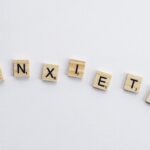Everyone goes through periods of anxiety in their lives. It is a feeling of worry, unease, or nervousness about something that may happen in the future. Anxiety can be a normal response to a stressful or challenging situation, but it can also be a debilitating condition that affects a person’s daily life. In this article, we will discuss what anxiety is, its symptoms, causes, different types, and the best treatments for managing it. We will also cover ways to cope with anxiety, help someone with anxiety, and how to stop a panic attack.
What is Anxiety?
Anxiety is a natural response of the body to stress or danger. It is a feeling of unease, worry, or apprehension about something that is going to happen or may happen in the future. Anxiety can be mild, moderate, or severe, and it can affect people differently.
For some people, anxiety can be a helpful response to stress. It can help them stay alert, focused, and motivated. However, for others, anxiety can become overwhelming and lead to physical symptoms, such as rapid heartbeat, sweating, or trembling.
Symptoms of Anxiety:
Anxiety can manifest itself in a variety of physical and psychological symptoms. The most common anxiety symptoms are as follows:
- Feeling nervous, restless, or tense
- Excessive worrying about future events
- Feelings of danger, panic, or impending doom
- Increased heart rate and breathing
- Sweating, trembling, or shaking
- Trouble sleeping or staying asleep
- Irritability or mood swings
- Difficulty concentrating or focusing
- Avoiding certain situations or activities
- Stomach upset or nausea
These signs and symptoms can vary from person to person and can be mild to severe. If you experience any of these symptoms, it is critical that you seek professional assistance.
How to Deal with Anxiety:
Dealing with anxiety can be challenging, but there are several things you can do to manage it. Here are some guidelines to assist you to deal with anxiety:
- Use relaxation methods like yoga, deep breathing, and meditation.
- Exercise regularly to reduce stress and anxiety
- Sleep enough to help your body cope with stress.
- Eat a balanced diet that contains lean proteins, whole grains, fruits, and vegetables.
- Avoid alcohol, caffeine, and nicotine, which can increase anxiety
- If your anxiety is interfering with your daily life, seek professional assistance.
How to Overcome Anxiety:
Overcoming anxiety is a lengthy and laborious process. Here are some strategies that can help you overcome anxiety:
- Understand your anxiety triggers and learn how to avoid them
- Negative thoughts should be challenged and replaced with positive ones.
- Use relaxation techniques like deep breathing or meditation to help you unwind.
- Face your fears and gradually expose yourself to situations that make you anxious
- Seek professional assistance if your anxiety is severe or interfering with your daily life.
What Causes Anxiety?
Anxiety can result from a wide range of factors, including:
- Genetics: Some people may have a genetic predisposition to anxiety disorders.
- Brain chemistry: Anxiety can be caused by an imbalance of neurotransmitters in the brain, such as serotonin and dopamine.
- Environmental factors: Stressful or traumatic events, such as the death of a loved one, divorce, or job loss, can trigger anxiety.
- Medical conditions: Anxiety can be caused by certain medical conditions, such as thyroid disorders or heart disease.
- Substance abuse: Drug or alcohol abuse can lead to anxiety.
Coping with Anxiety:
Coping with anxiety can be challenging, but there are several strategies you can use to manage it. Here are some coping mechanisms for anxiety:
- Use relaxation methods like meditation or deep breathing.
- Exercise regularly to reduce stress and anxiety
- Sleep enough to help your body deal with stress.
- Avoid alcohol, caffeine, and nicotine, which can increase anxiety
- Seek help from family and friends, or join a support group.
- Use self-care techniques like taking a warm bath or practicing mindfulness
- Consider therapy or counseling to learn coping strategies and tools to manage anxiety
Different Types of Anxiety:
Anxiety can take many forms, and there are different types of anxiety disorders. The following are some of the most common types of anxiety disorders:
- Generalized Anxiety Disorder (GAD): This type of anxiety disorder involves excessive and persistent worry about everyday events or situations, such as work or school.
- Panic Disorder: Panic disorder involves sudden and unexpected panic attacks, which can be accompanied by physical symptoms like chest pain, sweating, or shortness of breath.
- Social Anxiety Disorder: Social anxiety disorder involves fear and avoidance of social situations or interactions, such as public speaking or meeting new people.
- Obsessive-Compulsive Disorder (OCD): OCD involves persistent, intrusive thoughts or obsessions that lead to compulsive behaviors or actions.
- Post-Traumatic Stress Disorder (PTSD): PTSD can develop after experiencing or witnessing a traumatic event and can cause flashbacks, nightmares, or intense anxiety.
Best Treatments for Anxiety:
There are several treatments for anxiety, and the best approach depends on the severity of the anxiety and the individual’s needs. Some of the best treatments for anxiety include:
- Cognitive Behavioral Therapy (CBT): CBT is a type of therapy that helps individuals identify and change negative thoughts and behaviors that contribute to anxiety.
- Medication: Antidepressants, benzodiazepines, and beta-blockers can be used to treat anxiety disorders, but they should be used with caution and under the guidance of a healthcare provider.
- Mindfulness-Based Therapies: Mindfulness-based therapies, such as mindfulness-based stress reduction (MBSR), can help individuals learn to manage anxiety by focusing on the present moment and reducing stress.
- Relaxation Techniques: Techniques like deep breathing, progressive muscle relaxation, or meditation can help reduce anxiety symptoms.
Helping Someone with Anxiety:
If someone you know is struggling with anxiety, there are several things you can do to help:
- Listen: Be there to listen and offer support without judgment or criticism.
- Encourage Professional Help: Encourage them to seek professional help from a therapist or healthcare provider.
- Educate Yourself: Learn more about anxiety and its symptoms to better understand what your loved one is going through.
- Be Patient: Recovery from anxiety takes time, so be patient and offer ongoing support and encouragement.
Stopping a Panic Attack:
Panic attacks can be scary and overwhelming, but there are several things you can do to stop a panic attack:
- Practice Deep Breathing: Focus on taking slow, deep breaths to help reduce the physical symptoms of a panic attack.
- Ground Yourself: Use your senses to ground yourself in the present moment. Focus on things you can see, hear, touch, smell, or taste.
- Challenge Negative Thoughts: Challenge negative thoughts that may be contributing to the panic attack.
- Seek Support: Ask a dependable friend or member of your family for help.








